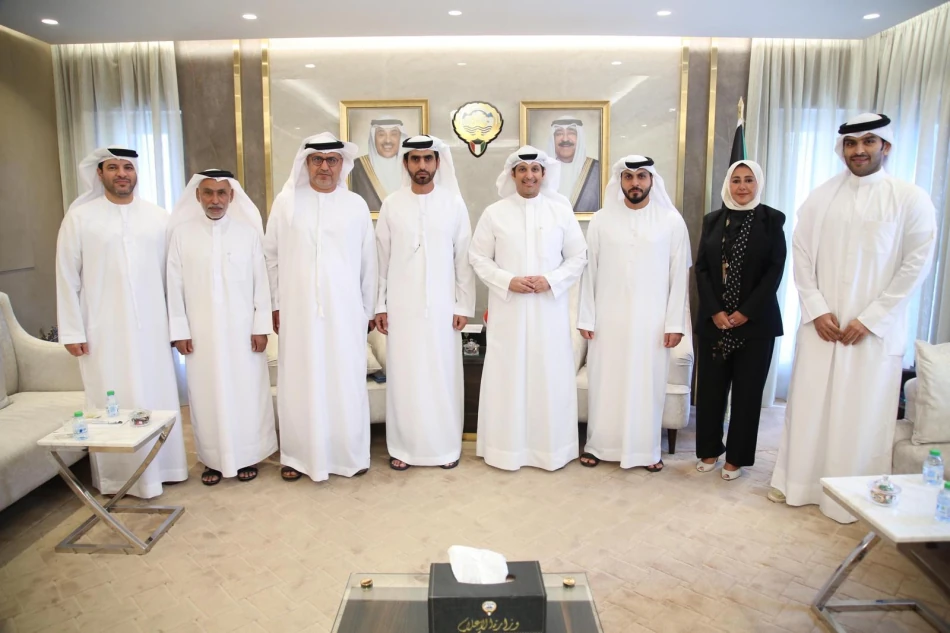
UAE Sports Unions Poised to Deliver Tangible Achievements, Says Falasi
UAE Sports Minister Charts Ambitious Path for 2024-2028 Olympic Cycle
The United Arab Emirates is positioning itself for a major sports transformation as newly elected federation leaders gather to implement the country's National Sports Strategy 2031. With women's representation exceeding 20% in sports governance and international expertise being strategically integrated, the UAE is building on its regional sports hub ambitions while targeting both competitive excellence and community wellness.
Strategic Leadership Transition Sets New Standards
Dr. Ahmed Belhoul Al Falasi, UAE Minister of Sports, convened with the newly appointed heads of sports federations for the 2024-2028 electoral cycle to establish operational frameworks for the coming period. The meeting marked a significant milestone in the UAE's sports governance evolution, emphasizing the dual mandate of competitive achievement and community engagement.
The minister highlighted the National Sports Strategy 2031 as the guiding framework, positioning sports development as integral to the country's comprehensive development journey. This strategic approach mirrors successful models implemented by Singapore and Qatar, where sports excellence correlates directly with national soft power projection.
Breaking Gender Barriers in Sports Leadership
A notable achievement in this electoral cycle is women's representation surpassing 20% across federation board compositions. This milestone aligns with the UAE's broader women's empowerment initiatives and reflects a growing trend across Gulf Cooperation Council nations to diversify sports leadership.
The appointment of leaders like Noura Al Jasmi as President of the Badminton Federation and Dr. Huda Al Matroushi heading the Modern Pentathlon Federation demonstrates the UAE's commitment to gender-inclusive governance in sports administration.
International Expertise Integration Strategy
The UAE's decision to incorporate international residents with specialized expertise into federation boards represents a calculated move to accelerate competitive capabilities. This approach, similar to strategies employed by countries like Australia and Canada, leverages global talent pools to enhance domestic sports development.
The integration serves dual purposes: elevating Emirati athletes' competitive standards while strengthening the country's appeal as an international sports investment destination. This strategy particularly benefits technical sports requiring specialized knowledge and international networks.
Community Sports as Foundation for Excellence
Al Falasi emphasized that community sports development carries equal importance to competitive excellence, reflecting lessons learned from successful sports nations. The "Sports for All" initiative, led by Said Al Ajel, aims to embed sports culture throughout Emirati society, creating a sustainable pipeline for future talent identification.
This community-focused approach aligns with global trends recognizing sports participation as a public health investment, potentially reducing healthcare costs while building social cohesion.
Economic and Investment Implications
The UAE's sports sector development strategy positions the country to capture growing regional and international sports investment flows. With Saudi Arabia investing heavily in sports through Vision 2030 and Qatar leveraging World Cup infrastructure, the UAE's balanced approach between elite competition and community engagement offers a distinctive market position.
The emphasis on international sporting events and investment attraction suggests the UAE views sports as an economic diversification tool, complementing its broader non-oil revenue generation strategies.
Measuring Success in the 2024-2028 Cycle
The newly appointed federation leaders face clear expectations: translate strategic vision into measurable achievements that enhance the UAE's regional and international sports standing. Success metrics likely include Olympic and Paralympic performance improvements, increased international event hosting, and expanded community participation rates.
The minister's confidence in the new leadership structure, combined with promised government support, creates conditions for significant advancement in the UAE's sports ecosystem during this crucial four-year period leading toward the 2028 Los Angeles Olympics.
Most Viewed News

 Sara Khaled
Sara Khaled






